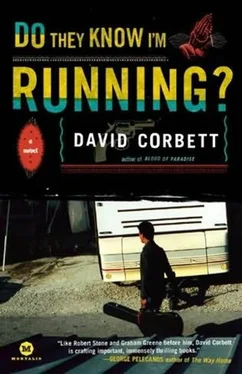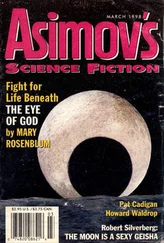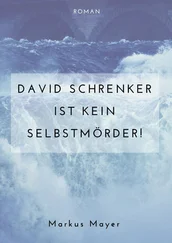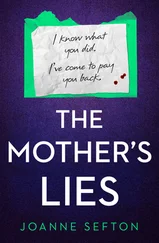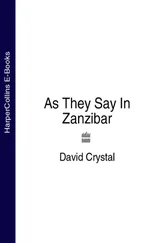“Out! Get out!”
Samir’s voice seemed swathed in cotton. Happy’s eyes still felt raw, he couldn’t see. He was covered in jagged shards from the splintered windshield but he grabbed at the door handle, fumbled for the lever, lifted hard, felt the door give way. Tumbling out, he plummeted ten feet to the ground, almost breaking his wrist and shoulder in the fall. Samir dropped close beside him, nearly crushing his hand, then grabbed his sleeve. “Under the trailer! Stay down.”
Happy would remember the gut-coiling nausea of his terror, the stench of cordite and burning gasoline and finally blood, the continuing gunfire sending ricochets everywhere, off the asphalt, the tires, the truck’s underframe. He thought: Why are they shooting at me-what have I ever done to them? We’re transporting baby incubators for fuck’s sake, school desks, food. Some time afterward, he would learn that the Badr Brigade and the Sadr militia, the two main Shiite paramilitary forces, were vying for control of government patronage; the attack most likely resulted from the Sadr faction hoping to undermine the Badr organization’s role in funding development. But that would mean little to him later and nothing to him now.
How much time passed? Why could he still not see except through a shimmer of tears? The Colombians, Samir told him, were overwhelmed, too few gunmen, too many enemies, all invisible. Four of the other trucks, one by one, exploded in sheets of white flame, their crews dead or wounded or scattered. Then Happy smelled the trickle of diesel leaking from his fuel tank. It was a fuse. It was death waiting to happen.
He began scrambling out from under the trailer. Samir dragged him back.
“We have to get out!” Happy kicked at Samir’s hands. “The gas tank!”
Tangled together, two halves of some comic beast, they scuttled into the crossfire and ran for a culvert overgrown with elephant grass running parallel to the road. What if gunmen are hiding here, Happy thought, feeling now an odd indifference to the idea of dying-at least I won’t be scared. His body clawed ahead, unwilling to give up yet, prodded into the tall sharp grass by Samir. Several inches of thick brackish water, foul with excrement, sat in the bottom of the culvert, while a noxious cloud of stinging flies swarmed up from nowhere. The truck erupted then in a towering fireball, an ear-splitting blast, the shock wave knocking them onto their knees in the thick black water. Nothing cohered anymore, there were just the screams of the dying clouded by smoke, flickering silhouettes backlit by raging fire, helpless shouts of cruel insistent horror or triumph, the words in English and Spanish and, farther away, Arabic.
Samir grabbed the shoulder of Happy’s filthy shirt, dragging him up onto his feet. “I see something. Come.”
Happy let himself be pulled along, able to see no more than a few feet ahead, the rest of the world a riot of savage form. They ran crouching, far too long a ways it seemed, Happy with his head down, afraid to lift it for fear of one lucky shot, footfalls breaking the crusted, sunbaked sand, then the screech of rust-dry hinges, a wood gate slammed open, gravel underfoot. He smelled manure, the musk of wool, the char of a wood fire. Samir dragged him through a door, sat him down in a bed of straw. “We’ll wait,” he whispered, chest heaving. “Maybe somebody radioed ahead. Maybe a patrol from Karbala will come. LAVs, tanks.”
Happy blinked and blinked, feeling the fine sharp dust in his eyes finally milking away. Not glass, he thought, thank God for that, but he was still unable to focus. His breath rumbled inside his chest, he coughed up dust. Then Samir grew suddenly stiff, his breath stilled. His clothing rustled, the stench of shit unfurled off his clothes as he slowly rose to his feet. Happy looked up: a reed-thin silhouette in the doorway of the barn, flowing black dishdasha, a checkered keffiyeh wrapped around his head. A Kalashnikov in his hands.
Samir spoke quietly in Arabic to the man, an old farmer perhaps. Or one of the gunmen? In the time it took to say a rushed prayer, some bargain was made, exchanged in whispers. Happy would know only that the man withdrew. Samir sat back down. “I told him we wanted nothing, we would say nothing.” Happy chose to believe, sitting in silence until the churning roar of Hueys flying low echoed from the south, relief from Karbala. They left the barn behind and ran crouching back the way they’d come, through boiling smoke and the cries of the dying, waving their arms in the rotor wash and its choking storm of dust.
GODO LISTENED TO HIS COUSIN’S TALE, MARVELING AT HOW LANGUAGE told you nothing. It was the tremor in Happy’s voice, the haunting emptiness in some words, the sloppy quick clutter of others, that gave him away. You can’t make up that fear. And for the first time in a long while, he felt the two of them were truly kin.
“Seems to me,” he said finally, “you need to know more about what went on with this farmer, this gunman, whatever he was. You could call down, have Roque hand your guy the phone, put it to him.”
Happy glanced up from behind his hands. “If he lied to me back then, why not just keep lying?”
“Got a point.”
“He’s down there with Pops. With Roque.”
Godo’s eye strayed to the clock. A little past ten now, still two hours until Tía Lucha would be home. A migraine was ticking away behind his eyes. “Yeah.”
“What should I do?”
Good question, Godo thought, watching as the walls inched inward a little, then inched back. He decided not to mention it to Happy. “He wants to get to the States. He’s not gonna fuck up Tío Faustino or Roque, not while they’re his ticket.”
“What about once they’re across? When he doesn’t need them anymore?”
Godo kept an eye on the walls, checking for further insolence. “Seems to me you’re gonna have to catch them just south of the border, right before they cross. Deal with it then.”
ROQUE SLEPT NEAR THE DOOR, LUPE ACROSS THE ROOM, BOTH curled up on the concrete floor, nothing but newspapers and flattened cartons for comfort, the air close and hot. At some point in the interminable night, the lizard finally chose his path and vanished from the wall.
Rafa had locked them in, saying he’d be back around daybreak. They’d arouse too much suspicion, he said, trying to cross in the middle of the night. He parked the Corolla in the service bay, so no one could hot-wire it, and come morning Roque and Lupe would drive it through the checkpoint, then continue on several miles to a roadside chalete run by a woman named Chita. There they’d wait for Humilde to appear after a nightlong trek with Samir and Tío Faustino in tow. Simple, Roque thought, lying awake, picturing ways it could all go wrong.
He kept coming back to Tío and Lupe. Was she really the tragic cause his uncle made her out to be? All that talk about sucking Arab cock, she said it so breezily-and hadn’t Lonely called her a putilla , a wannabe whore? She wasn’t just a singer with stars in her eyes, gulled by her own ambition. She had other talents, talents Lonely got bored with, though not so bored he wasn’t willing to sell them to somebody else.
Regardless, there was something broken inside her, something she’d tried to mend with fury. It made her a wild card. Maybe she’ll try to run, he thought, maybe she’ll want some sort of payback, a way to get even or maybe she’ll just turn the rage on herself, roll into a ball, settle in for her fate. There was no way to tell.
A kind of homesickness came over him, not for Rio Mirada or Tía Lucha but Mariko, and yet the dishonesty in that seemed clear soon enough. You just want to get laid, he thought, and the feeling gave way to something else, a kind of emptiness, as though his heart had become a grave and in the grave was buried what he’d once considered love. What is it we want, he thought, that we try to find in a woman? Especially a woman who isn’t fooled, who won’t buy into the usual bag of tricks. Secretly we want to be seen for who we are, the rest is just show. We want love, not praise. And yet that seemed a recipe for weakness, a shortcut to failure.
Читать дальше
